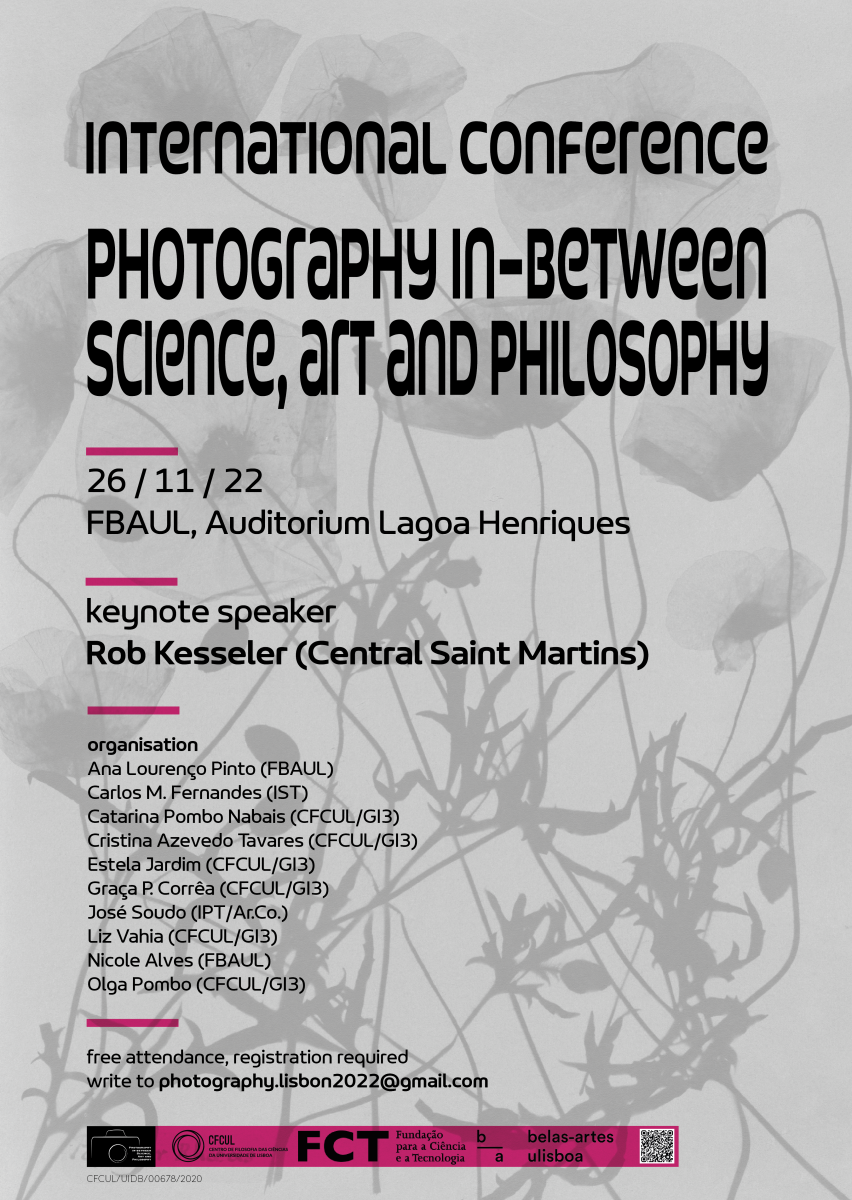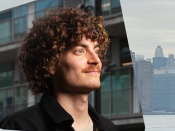Photography has been the object of several theories, working with concepts as diverse as apparatus in the political/cultural approach by Vilém Flusser, as punctum and studium proposed by Roland Barthes, as psychoanalytic symptom advanced by Didi-Huberman, as aura (fetish) by Walter Benjamin, or as world-image by Susan Sontag.
However, all theories point to the same evidence: the complex reality, the several dimensions, of photography. Photography has the capacity to capture and perceive the world, that is, it can, at the same time, absorb the world and understand it. Simultaneously, it encloses a fundamental play between its (apparent) passivity and its transformative effects, between its (questionable) impartiality and its critical power. Photography has yet another dimension, that of being a transcendental exercise: when thinking about the world, photography thinks of itself as an image.
This colloquium aims at thinking photography from the perspectives of Science, of Art and of Philosophy. To analyse theories, techniques, and practices. To approach scientific photography, artistic photography, and new technologies. In a world full of images and multiple techniques for capturing and producing images, it is imperative, more than ever, to think photography.



















